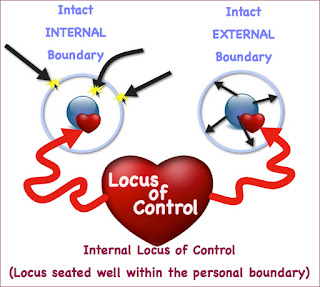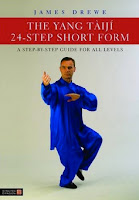High
demand groups manage tension and pain which arise from natural and
healthy disagreements and differences by forcing uniformity. Again,
we come back to the fact of life that we human beings are very
dynamic and diverse, something that a group purports to “correct”
for the member, giving the illusion that they've resolved that
healthy tension. Anyone who espouses beliefs that are different from
the group are discounted or demonized which further galvanizes the
control that they hold over a member. In doing so, they force and
reinforce the idea that the wider world outside of the group is very
unsafe.
So what
happens when a person exits a group? They lose their support systems
(family and those associated with the group), they are in a state of
hypervigilance because of the trauma of burying their identity, their
critical thinking skills have been lulled to sleep in order to
survive in the group which does their thinking for them, and the
group has alienated them from their own autonomy. For those who have
grown up in the group, they may never have experienced autonomy.
There is no switch to flip that causes a person to reset and reboot.
Whether they like it or not and on top of having to learn how to deal
with the realities of life outside of their group, they find
themselves saddled with a tremendous amount of personal development
to do as they recover from their experience.
Developing
Healthy Tolerance
 As noted
in the previous post, individuals need to find a place of dynamic
balance concerning power as they learn where and how they fit into
the world. High demand groups force extremism on the member, so as
the individual recovers after exiting, but the unspoken rules of how
to live in balance differ greatly from those that the former member
lived out in the group. The group's allegedly protective rules for
enforced uniformity and tightly controlled milieu of communication
and experience exemplify an external locus of control.
As noted
in the previous post, individuals need to find a place of dynamic
balance concerning power as they learn where and how they fit into
the world. High demand groups force extremism on the member, so as
the individual recovers after exiting, but the unspoken rules of how
to live in balance differ greatly from those that the former member
lived out in the group. The group's allegedly protective rules for
enforced uniformity and tightly controlled milieu of communication
and experience exemplify an external locus of control.
In the
wider world, life is full of ambiguity and diversity, but the rules
for coping with the natural and healthy tension that arises from
these contrasts prove to be much different. Remember that groups
employ control and chaos, but in the wider world, tension and
diversity drive personal growth. The world is not a fair place and
can be dangerous, but the ideas about it and the ways that members
cope with threat while in a group don't work well in life outside of
their group. Former members have been isolated from or were never
taught the two primary, healthy means of coping with interpersonal
diversity: boundaries and locus of control.
 Protective
Boundaries and Locus of Control
Protective
Boundaries and Locus of ControlTo give a picture to boundaries, imagine that your own sense of worth is a sphere. In a “good enough” family or group, your heart is full and you have all of the confidence and personal sense of peace that you need to live a happy, healthy adult life. Boundaries come along with that to help you weather difficulties in life over which you have no control. You have the power to choose what you leave into your heart and mind (an external boundary), and you have control over what you choose to say and do when with and communicating with other people (an internal boundary).
 Pia
Mellody describes boundaries using the image of the starting posture
in Tai Chi. One hand is extended forward (filtering out threats and
danger), and the other hand is placed on the chest (expressing the
power and discipline of self-containment) as noted on
this book cover. Some of the descriptions of Tai Chi posture
found
here are lovely when considering the task of affirming self.
Pia
Mellody describes boundaries using the image of the starting posture
in Tai Chi. One hand is extended forward (filtering out threats and
danger), and the other hand is placed on the chest (expressing the
power and discipline of self-containment) as noted on
this book cover. Some of the descriptions of Tai Chi posture
found
here are lovely when considering the task of affirming self.
When
your understand self worth and acceptance of the diversity as
something good that is not an automatic threat (an element of an
external boundary), and when this works in concert with balance of
focus on those things which are squarely in your own power (internal
locus of control), diversity no longer seems like a threat. Both of
these concepts and attitudes about self create a sense of safety and
strength.
Life
on the Outside without Healthy Boundaries and an Internal Locus
Imagine
that all you know about how to get along with others came from an
unhealthy, manipulative, high demand group. The boundaries that you
have are weak at best, and you've learned to earn your worth through
performance. Peace and safety are vested outside of yourself, and
you have no barriers to protect you from an unfamiliar world. You
know conformity, and while you know how painfully difficult it feels
to fit into a demeaning box that doesn't accommodate you, uniformity
makes things much easier. And you need something that's a bit easy
when you have so many other pressures that push and pull you. You've
got plenty about which to feel angry and uncomfortable, and you are
in the throws of learning what you should have learned when you were
a child. You're tired, frustrated, and everything feels different to
you. Diversity feels painful.
 Without
any protection, diversity and freedom feel good to you to experience,
but when faced with the consequences or the ideas of others who are
different from you as they freely express themselves, they feel like
a threat. Most of what you know from your experience involves a code
of conformity which served to protect you. You don't know how to
filter out things that might feel painful to you. You've had little
experience with thinking outside of a black and white style, though
you understand all too painfully how it can hurt when directed at
you. And when threatened, you will very likely go back into the
default mode of experience – and that which you saw modeled for
you. It takes time and energy to learn other ways of doing things,
and your world was kept intentionally small.
Without
any protection, diversity and freedom feel good to you to experience,
but when faced with the consequences or the ideas of others who are
different from you as they freely express themselves, they feel like
a threat. Most of what you know from your experience involves a code
of conformity which served to protect you. You don't know how to
filter out things that might feel painful to you. You've had little
experience with thinking outside of a black and white style, though
you understand all too painfully how it can hurt when directed at
you. And when threatened, you will very likely go back into the
default mode of experience – and that which you saw modeled for
you. It takes time and energy to learn other ways of doing things,
and your world was kept intentionally small.
And
though you may have internal boundaries that are quite strong in
terms of practice because you had to conform to a rigid standard of
behavior, in other areas of life, it can be difficult to use the same
constraint when you feel as though you've been targeted and attacked.
Trauma, pain, and inexperience make us less resilient emotionally,
especially when we are juggling so many new things and ideas, along
with the struggles of life which are generally plenty. What do you
do when you feel wounded and overwhelmed in your effort to regain a
sense of safety and peace when you lack so much emotional
self-regulation?


